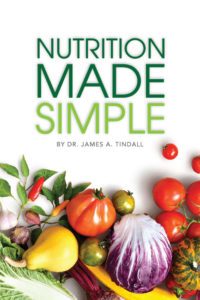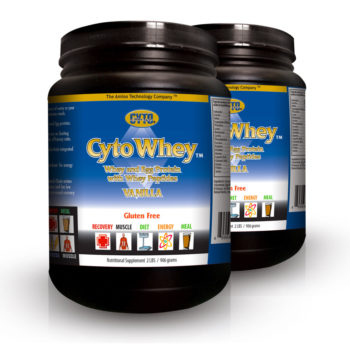Are you what you eat? Can you be a great bodybuilder as a vegan? The majority of individuals eat animal products. As the saying goes, yes, we are what we eat or become what we eat. Considering our composition our hair, nails, skin, and bones are comprised mostly of protein. And while you can perform well as a vegan, the fact is that protein from animal products still provides the most efficient fuel for muscle growth.
Muscle growth is due primarily to protein synthesis hence the reason many still shove down raw eggs. Nutrition science keeps improving as we discover more issues in protein synthesis and other areas of nutrition, but the real basics have not and likely will not change since human physiology remains, for all intents and purposes, constant.
How Much Protein is Needed?
Just like athletes, those who work out consistently, competitors or not, need more. Although 56 grams of protein per day is the recommendation, you will benefit by including more in your diet. Not only can protein help prevent diabetes, heart disease, and obesity, it also dulls hunger. For all who have eaten a hearty steak or other meaty meal you know that meat, i.e., protein is very filling. A ball park figure for protein requirements are about once gram of protein per pound of body weight. Scientifically, the number is rounded to 0.8 grams per pound of body weight for highly-trained, competitive athletes. So, step on a scale and weigh yourself. However, note that if you are in a weight reduction program, use the weight you wish to reach. For the rest of you, suppose Susan weighs 150 pounds; this means she needs 120 grams of protein per day, i.e., 150 x 0.8 = 120.
Advertisement: Amazon (click on photo for more info)
 If you are a person who works out 5 to 6 days per week, for at least an hour per workout, your required amount of protein is 0.6 grams per pound of body weight. But, let’s get back to the person who wants to lose weight. Protein is remains very essential because the fewer calories you consume, the more of it you need. If you’re losing weight, consider your goal end weight. Then, keep your protein intake to between 0.5 to 0.7 grams per pound of that weight, i.e., you want to lose 25 pounds and get down to 185 thus, 185 is the weight you need to consider for your personal protein use. Why? Because this ratio will help you preserve calorie-burning muscle mass.
If you are a person who works out 5 to 6 days per week, for at least an hour per workout, your required amount of protein is 0.6 grams per pound of body weight. But, let’s get back to the person who wants to lose weight. Protein is remains very essential because the fewer calories you consume, the more of it you need. If you’re losing weight, consider your goal end weight. Then, keep your protein intake to between 0.5 to 0.7 grams per pound of that weight, i.e., you want to lose 25 pounds and get down to 185 thus, 185 is the weight you need to consider for your personal protein use. Why? Because this ratio will help you preserve calorie-burning muscle mass.
Proteins are Different
If you talk to a vegan, nuts and beans are great sources of protein. There is no argument there because they are correct. However, the best sources of protein are eggs, meat, dairy products, and fish. The reason is because animal proteins are what we call complete proteins – they contain the proper proportions of all the essential amino acids your body needs but cannot synthesize on its own. If you are a competitive athlete, you need to know more about how this process works. It is possible to get all of this protein from plant-based foods, but you’ll need to consume about 25 percent more foodstuffs to meet your requirements. The disadvantage of the latter is the number of carbs you’ll need to consume, which for some, will make it harder to lose weight. Now, I’m not saying that you should go out, get a bucket of hot wings and dunk them in ranch or some other dressing. In the end, it remains about total calorie intake. Therefore, you will still want to reduce your carbohydrate and fat intake to make room for your choices of lean protein.
Protein Timing
If you are active, your body, even at rest, continually breaks down and builds protein. In regard to timing, every time you eat about 30 grams of protein, you trigger protein synthesis that can last up to three hours. Because of this, you don’t want to eat all of your protein at dinner or other single meal. Just as in meal frequency, spread protein intake throughout the day for best benefits. This helps fuel muscle growth throughout the day. The reason to spread it out is because your body can process only so much protein at one time efficiently. Think of giving your car a lot of gas at once. If you give it too much the engine floods out and you go nowhere; the excess fuel, like protein just spills over. Likewise, if you ate say 100 grams of protein at one time, the benefit is no better than eating what you should max at – 30 grams of protein at one time. I sometimes put my overweight athletes on an all protein diet, for about two weeks to shed all they need to get to a reasonable weight to protect themselves in their chosen sport. Don’t just go jump out and try this, there are guidelines (contact the author if you have questions). Thus, for the average person, consume protein for each of your three major meals and then, have cheese, jerky, and other proteins for snacks in your meal frequency routine. This will help you to consume less food and keep your weight more controlled for your goals. One thing I constantly remind my clients of is to eat a good breakfast. It’s the most important meal because the sooner you eat, you spike your metabolism for the day. And, because of this, you can also start the day with a protein-rich breakfast, which is generally less in calories, about 200 calories, than the average carb heavy breakfast.
Advertisement: Rolex (click on photo for more info)

What about Workouts and Protein?
If your workout is a little higher intensity, your body will crave fuel. So, you need to consume protein, right? Yes, we all know this, but how much and when is the real question. Let’s look at the simple fact that every time you work out, you prime your muscles to respond to protein, hence all the protein drink science. At the same time, while you have primed your muscles to receive protein, there is a limited window of opportunity to take advantage of this to promote muscle growth from your workout. Do you want to build lasting, strong, muscles? Of course, most of you do. Therefore, follow this rule: consume ½ of your protein drink before your workout (about 30-35 minutes prior) and the other half 30-45 minutes after the workout. Do not exceed the 45-minute window. Suppose you weigh 205 pounds and consume about 160 grams of protein per day. Does this mean that you should consume ½ of it before and after your workout? No! For the workout period, before and after, 10-20 grams is best. Thus, consume about 10-20 grams of protein 30-35 minutes before your workout and 10-20 grams 30-40 minutes after your workout. It is likely that most of you are quite familiar with protein supplements. Choose a good one and have fun.







